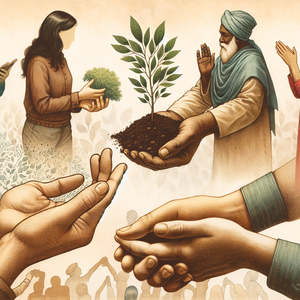The Power of Community Support Networks

Community support networks consist of a broad spectrum of organizations, groups, and individuals that provide assistance and resources within a community. These networks can range from non-profit organizations, faith-based groups, and local businesses to informal community gatherings and online platforms. Social workers play a pivotal role in identifying these resources and connecting clients to them, ultimately promoting resilience, well-being, and a sense of belonging among individuals and families.
Leveraging Existing Networks
Social workers can leverage existing networks by building relationships with local organizations, fostering collaboration among community members, and creating innovative solutions through Participatory Action Research.
Building Relationships with Local Organizations
A foundational strategy for social workers is to forge strong relationships with local organizations. By collaborating with schools, healthcare providers, and community centers, social workers can create an effective referral system that streamlines access to essential services. This not only benefits clients but also strengthens the overall capacity of the community to support its members.
Fostering Collaboration Among Community Members
Social workers can serve as facilitators, bringing together diverse stakeholders to collaboratively address community challenges. Organizing community forums, workshops, or focus groups encourages open dialogue and collective problem-solving. This method not only empowers community members but also fosters trust and solidarity.
Creating Innovative Solutions Through Participatory Action Research
Participatory Action Research (PAR) is an innovative method that enables communities to identify their needs and collaboratively develop solutions. Social workers can leverage PAR to engage clients and community members, ensuring their voices are prioritized in decision-making processes. This approach fosters a sense of ownership and accountability, leading to sustainable outcomes.
The power of community support networks in social work is profound. By leveraging existing resources, fostering collaboration, and employing innovative approaches like Participatory Action Research, social workers can enhance service delivery and create meaningful change in their communities. The examples highlighted illustrate that when social workers actively engage with community networks, they not only improve the lives of their clients but also fortify the fabric of the community itself. As we continue to face complex social issues, embracing the potential of community support networks will be essential in building a resilient and empowered society. In a world where emotional resilience and a genuine commitment to community support are paramount, the role of social workers in nurturing these networks will only grow in significance.
Community Engagement Coordinator
Non-profit organizations, local government agencies, community foundations
Core Responsibilities
Develop and implement outreach programs to engage community members and organizations.
Facilitate workshops and training sessions that empower residents to participate in community initiatives.
Assess community needs through surveys and focus groups to inform program development.
Required Skills
Strong communication and interpersonal skills to build relationships with diverse groups.
Experience in project management and community organizing.
Proficiency in data collection and analysis.
Social Work Case Manager
Hospitals, mental health clinics, non-profit organizations, government agencies
Core Responsibilities
Assess clients' needs and develop personalized service plans to address social, emotional, and economic challenges.
Connect clients with community resources such as housing, healthcare, and educational services.
Monitor client progress and adjust services as needed, ensuring ongoing support and advocacy.
Required Skills
Knowledge of social services and community resources.
Strong organizational skills and the ability to handle multiple cases simultaneously.
Empathy and cultural competence to work effectively with diverse populations.
Program Director for Community Development
Non-profit organizations, community development corporations, local government
Core Responsibilities
Oversee the design, implementation, and evaluation of community development programs aimed at improving local quality of life.
Collaborate with stakeholders, including government entities and local businesses, to secure funding and support.
Lead a team of social workers and volunteers to execute community initiatives effectively.
Required Skills
Proven leadership experience and the ability to manage teams.
Strong budgeting and financial management skills.
Experience in grant writing and fundraising.
Youth Development Specialist
Schools, youth organizations, community centers, non-profits focused on youth services
Core Responsibilities
Design and implement programs focused on youth engagement, education, and empowerment.
Mentor at-risk youth, providing guidance and support to help them achieve personal and academic goals.
Collaborate with schools and community organizations to create safe spaces for youth development.
Required Skills
Background in education, psychology, or social work.
Experience working with youth and understanding of adolescent development.
Strong facilitation and conflict resolution skills.
Participatory Action Research Facilitator
Academic institutions, non-profit organizations, community health organizations
Core Responsibilities
Lead community-based research projects that engage residents in identifying issues and developing solutions.
Train community members in research methodologies, data collection, and analysis techniques.
Present research findings to stakeholders and advocate for community-driven policy changes.
Required Skills
Expertise in qualitative and quantitative research methods.
Excellent facilitation skills to engage diverse community members.
Strong analytical skills to interpret data and translate findings into actionable strategies.


